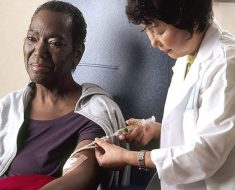The Department of Veterans Affairs and IBM Watson Health have announced a one-year extension to an ongoing public-private partnership applying the AI company’s technology to genomic data for cancer therapy.
The precision oncology collaboration has so far assisted the treatment of more than 2,700 veterans, according to a statement, although the original agreement in 2016 had proposed the lofty goal of treating 10,000 patients. Dr. Michael Kelley, professor of medicine at Duke University and the national program director for oncology at the VA, admitted that the initial benchmark was a bit ambitious, but is more attainable now that the two partners have laid a groundwork for future patients.
“I think we [IBM and the VA] were both pleased with what we’ve accomplished so far, and we both see that the immediate future looks bright for extending that,” Kelley told MobiHealthNews. “When the initial agreement was made, we set a limit of how many patients we would do. We are below that limit, so we’re basically having what would be thought of as a no-cost extension. But clearly, when we looked back at those two years, initially there was some startup activities — getting used to each other’s data and how our systems talk to each other. We really started to ramp it up about a year ago, where we went from a drip to opening the fire hose.”
Whereas a single oncologist or care team doesn’t have the time or capacity to memorize all of the available information regarding treatments and specific cancer-linked genes, IBM’s Watson for Genomics is able to reference these data to match patients with appropriate therapies or clinical trials, Kelley explained. Currently, VA oncologists and pathologists caring for stage 4 cancer patients with solid tumors can send a tumor or blood sample for testing a panel of roughly 100 genes, he said.
“Initially we wanted to get this up and running, and we’re actually doing it in more than half of the [VA] medical centers around the country,” Kelley said. “I think we’re going to continue to amplify its availability, and I do imagine before too long — maybe later this year — that this will become the default approach to doing this type of testing.”
While the early clinical data has shown promising results, Kelley also noted that implementing the AI technology will help the VA reduce variability that is common in cancer care.
“[Cancer treatment] is still somewhat of an art, and I think one of the nice things about Watson is it starts to turn it into a more predictable science,” Kelley said. “Of course we don’t want to take [doctors] out of the equation, but we want to make their job very efficient so that the quality of that is very good. What we’ve shown is there’s quite a lot of variability [in interpreting results], so I think one of the nice things about Watson is that it is more standardized — you get similar results all the time, and there’s some clear basis for the decision-making processes. It’s not perfect, but we think it has promise in that regard. “
More than one-third of those treated through the VA’s precision oncology program are vets living in rural areas of the country, according to a statement. The new agreement will allow VA oncologists to continue using Watson for Genomics through June 2019, at least.
“VA is leading the nation to scale and spread the delivery of high-quality precision oncology care, one veteran at a time,” Dr. Kyu Rhee, chief health officer for IBM Watson Health, said in a statement. “It is incredibly challenging to read, understand, and stay up-to-date with the breadth and depth of medical literature and link them to relevant mutations for personalized cancer treatments. This is where AI can play an important role in helping to scale precision oncology, as demonstrated in our work with VA, the largest integrated health system in the U.S.”
Twitter: @dave_muoio
Email the writer: [email protected]
Source: Read Full Article





